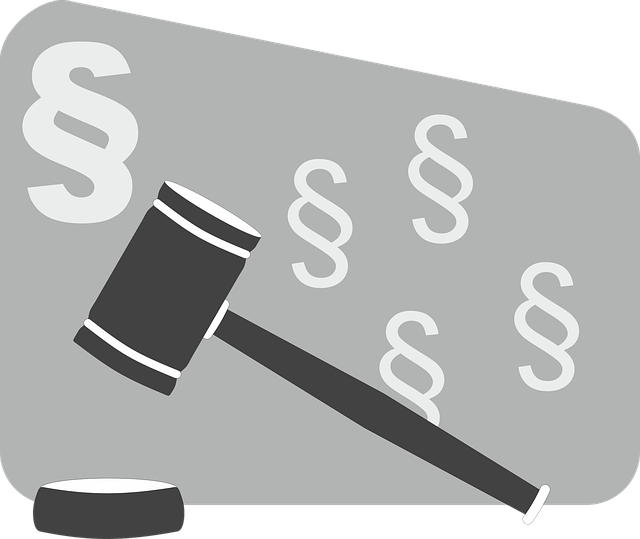Antitrust laws globally protect markets from monopolies and price-fixing, with severe penalties for non-compliance, including fines, asset forfeiture, and criminal charges. The U.S.'s FTC leads enforcement across diverse industries. Violations in the securities industry stem from poor corporate governance, oversight failures, financial reporting inaccuracies, and manipulation. Proactive compliance measures and transparency can avoid legal implications, such as substantial fines, civil lawsuits, criminal charges, and reputational damage, emphasizing the Legal Implications of Securities Compliance Failures.
“Antitrust violation cases have far-reaching effects, especially within the securities industry. This article delves into the intricate world of antitrust laws, their enforcement mechanisms, and common pitfalls that can lead to violations. We explore the legal implications of securities compliance failures, including substantial fines and penalties. By understanding the root causes, such as market manipulation and price fixing, investors and businesses can implement preventive measures to ensure adherence to antitrust regulations, thereby mitigating potential legal risks.”
- Understanding Antitrust Laws and Their Enforcement
- Common Causes of Antitrust Violations in Securities
- Legal Consequences for Non-Compliance: Fines and Penalties
- Preventive Measures: Ensuring Securities Compliance
Understanding Antitrust Laws and Their Enforcement

Antitrust laws are designed to promote fair competition and prevent the formation of monopolies that could harm consumers and markets. These laws vary across jurisdictions but share common goals, such as ensuring free market access, preventing price-fixing agreements, and fostering innovation. The legal implications of securities compliance failures play a significant role in antitrust cases. Companies found guilty of violating these laws face severe consequences, including substantial fines, asset forfeiture, and even criminal charges for key executives.
Enforcement of antitrust laws is typically handled by specialized government agencies, such as the Federal Trade Commission (FTC) in the United States. While some cases are resolved through negotiations and settlements, others proceed to jury trials where companies must present a winning challenging defense verdict to avoid or mitigate penalties. Across the country, businesses operating in diverse industries have been impacted by antitrust violations, underscoring the wide reach of these legal protections and the importance of strict compliance.
Common Causes of Antitrust Violations in Securities

Antitrust violations in the securities industry often stem from a variety of factors that can lead to significant legal implications. One common cause is the failure to maintain proper corporate governance and oversight, where executives and board members may engage in practices that hinder fair competition. This includes actions such as price-fixing, market allocation, and the suppression of competitive bidding, which directly contradict the principles of a free market economy.
Moreover, compliance failures at all stages of the investigative and enforcement process can also contribute to antitrust violations. Inaccurate financial reporting, manipulation of stock prices, and the abuse of inside information are among the strategies that can trigger legal action. The legal implications extend beyond monetary fines; companies may face civil lawsuits, criminal charges, and the loss of public trust. By contrast, proactive compliance measures and transparency within philanthropic and political communities can help avoid indictment and foster a culture of ethical business practices.
Legal Consequences for Non-Compliance: Fines and Penalties

The legal consequences for non-compliance with antitrust laws can be severe. Companies found guilty of violating antitrust regulations are typically subject to substantial fines and penalties, which vary depending on the severity of the offense. These penalties serve as a powerful deterrent and a means to rectify competitive harm caused by anti-competitive practices. The enforcement agencies have the authority to impose monetary sanctions, often reaching into millions or even billions of dollars, especially in cases involving large corporations that have engaged in collusion or market manipulation.
Moreover, non-compliance can lead to additional legal implications, including criminal charges for individuals involved and potential civil lawsuits from affected businesses or consumers. The impact extends beyond financial losses as it can damage a company’s reputation and erode public trust. Achieving extraordinary results in antitrust cases often relies on navigating all stages of the investigative and enforcement process, ensuring robust defense strategies to mitigate risks and consequences related to white-collar and economic crimes.
Preventive Measures: Ensuring Securities Compliance

Ensuring securities compliance is paramount for businesses to avoid the legal implications of securities compliance failures, which can lead to severe consequences in high-stakes cases. Companies must implement robust internal controls and risk management strategies to protect themselves from potential antitrust violation charges. These measures include regular audits, employee training on regulatory requirements, and establishing clear policies that align with industry standards.
By integrating these preventive measures, corporate and individual clients can mitigate the risks associated with non-compliance. Such proactive steps not only safeguard against legal penalties but also foster a culture of ethical business practices within the respective business. This approach is crucial in navigating complex regulatory environments and ensuring long-term sustainability in the face of increasing competition.
Antitrust violation cases, especially within the securities sector, carry significant legal implications. By understanding the common causes of violations, such as market manipulation and price fixing, investors and businesses can proactively implement preventive measures to ensure compliance. These include rigorous training programs, transparent communication, and robust internal controls. Adhering to antitrust laws not only mitigates the risk of substantial fines and penalties but also fosters fair competition, ultimately benefiting consumers and the broader market.






